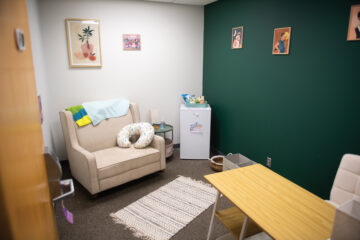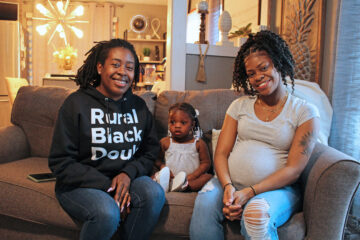By Nicole Grundmeier
My friend witnessed a near-drowning on June 6 at Holiday Aquatic Center in West Des Moines.
She watched a mother drop off three children: a boy who looked to be maybe 13, and two little girls, approximately ages 6 and 2. The teenager did the best he could to watch the two younger children. But at some point the 6-year-old girl slipped away and jumped into the deep end.
She was not a strong swimmer. The lifeguards noticed her, sounded the alarm, and pulled her out of the water.
The lack of adequate summer child care can reduce the productivity of Iowa parents. It can also be dangerous or, at the very least, detrimental, in terms of child development.
My friend shared her story in a Des Moines parenting group on Facebook, advising parents to put weak swimmers in lifejackets and neon-colored swimming suits, which are easier for lifeguards to spot in the water.
Some of the comments that followed bordered on mom-shaming: “I would report the parent.” “How can any mom just leave her children like that? Blows my mind.” “I could not imagine ever doing this … What was she thinking?” “I worked at a pool for six years and this happened all the time. Sometimes even 10-year-olds were supposed to be watching toddlers.”
But here is a reality check: Some parents often use the pool as a babysitter when they have no other options.
Of course, for many families, adequate child care is a riddle with no good answer year-round. But the challenge becomes more acute during the long summer off from school.
Moms are shamed for leaving their children at the pool. (Drowning is the No. 1 cause of death for children ages 1 to 4, according to the Centers for Disease Control and Prevention in a recent story by the New York Times.) But we rarely hear criticism of fathers for leaving their children at the pool.
Summer child care is challenging, especially for low-income parents, parents who work irregular or inconsistent hours, and parents who lack an adequate support network.
Summer child care programs at schools often have limited availability and limited hours. Some parents cannot afford the fees for these programs, let alone the pricier private day cares or camps. Those kids often end up in the care of older siblings or grandparents. Or, they’re alone.
Parents from higher income brackets can put their children in a dizzying mishmash of camps, athletics and other activities. They can hire nannies, but a nanny who wants to work for just three months is a rare gem. These parents struggle, too. Camps fill up quickly – often in February. There are long waiting lists. Some parents can work from home while their children are home for the summer, but their productivity suffers.
Summer child care is rarely easy. But there are solutions. Fearless readers: What has helped you that could help other parents?
What are your challenges? What has worked for your family? What hasn’t worked for your family? Do you know of an innovative program that has filled this gap? Please email me: nicolegrundmeier@bpcdm.com.


